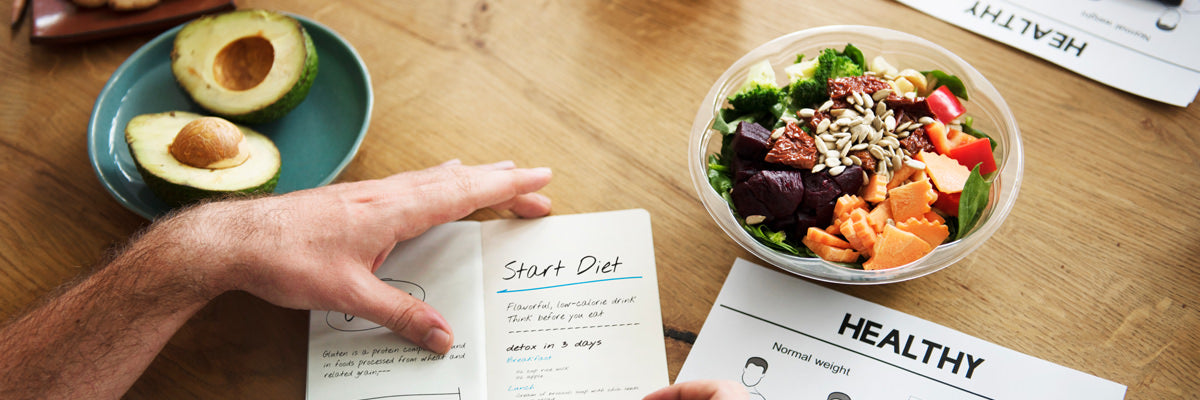If you’re looking to get started with a low carb diet, you may have some mixed feelings. On one hand, you’re excited to get started and to see the (hopefully!) great results. On the other hand, you’re worried about whether this diet is going to pan out. Will you be able to stick with it? Will you be able to give up your favorite carb-dense foods for a long period of time? Will hunger deter you from reaching your goals?
These concerns may cause some anxiety and may even tempt you to reconsider the diet entirely. Stop! While it’s true that you may not feel as amazing on a low carb diet as you do right now, the same could be said for any diet. Any time you’re in a calorie deficit, you aren’t going to feel as great as you do when you’re eating for maintenance. Hunger and fatigue are normal physiological reactions when energy is being restricted.
Fortunately, there are some tips to help ensure your low carb diet is as successful as possible. Here are some do’s and don’ts to keep in mind.
DO Make Sure That You’re Drinking Enough Water
One thing that’s very common when you start a low carb diet is a rapid weight loss off the start. This is due to the fact that you’ll lose a great deal of water as your muscle glycogen levels start to become depleted.
As such, it’s important that you replace this fluid accordingly. Focus on having at least 8-10 glasses of water per day, especially during the initial two weeks or so of starting your low carb plan.
One of the primary reasons why many people don’t feel their best when following a low carb diet is because they aren’t drinking enough fluids on a daily basis, and are actually in a state of dehydration. To help counteract dehydration, try KAGED MUSCLE Hydra-Charge. It adds great flavor to your water, making it far easier to get down, and also helps to super-hydrate your cells with its electrolytes for better performance and well-being – all without adding carbs.
DON’T Expect the Initial Rate of Weight Loss to Continue
It’s important to have realistic expectations with any diet plan. When starting a low carb diet, some people lose 5-7 pounds in the first couple of weeks. Then, they become very discouraged when weight loss slows to a normal rate of a pound a week.
Don’t let this happen to you. Realize that the initial weight you lost was primarily water weight, not body fat, therefore it’s not possible to keep losing weight at this pace.
Once you’re through that initial period, the weight loss that you see will be fat loss, so take comfort in knowing that you’re still seeing great progress.
Half to one pound a week is a perfectly acceptable rate of weight loss to be seeing.
DO Keep Plenty of Vegetables in Your Diet
Unless you’re following a ketogenic diet (whereby your carbohydrates can only make up 5% of your total daily calorie intake) make sure that you’re eating a wide variety of vegetables on your lower carb diet plan.
Vegetables are rich in vitamins, minerals, and antioxidants – all nutrients you need to stay healthy. They also provide a good dose of dietary fiber to your day, which can help prevent constipation that many people experience on low carb diets.
Because vegetables are so low in calories and carbohydrates, you can usually add them to your low carb diet without impacting your progress.
DON’T Overdo Intense Exercise
When it comes to losing weight, often you need to choose – do a very intense diet or a very intense workout plan, but not both. If you try and cut way back on calories and carbs and also enlist an intense workout program, eventually you’re going to burn out. You’re simply not eating enough fuel to get you through those intense workouts, so something has to give.
If you’re going to follow a lower carb diet, plan your workouts accordingly. A lower carbohydrate approach calls for steady state cardio training and lower volume weight lifting.
If you want to train at a higher level than that, it’s advisable to make sure your recovery nutrition is on point. Consume RE-KAGED post-workout recovery protein immediately following your workouts.
DO Plan For Periodic High Carb Days
As you go about your lower carb diet, be sure to strategically include higher carb days. With a low carb, reduced calorie diet, leptin (a hunger hormone) tends to decline more significantly than if you were reducing your calories with moderate carbs. The decrease in leptin leads to a greater decrease in metabolism along with strong hunger and food cravings.
By implementing a few higher carb days, you’ll boost leptin levels and continue to see superior progress down the road. Those who neglect to do this may find they stall in their fat loss journey much sooner, failing to see ongoing results.
DON’T Be Alarmed When the Scale Increases After a High Carb Day
Finally, when you add these high carb days into your plan every few weeks or so, do not be alarmed when you step on the scale the next day and see that your body weight has gone up five or more pounds. This is perfectly normal and is not fat gain.
Remember that initial period of rapid weight loss you saw off the start? The period of rapid water weight loss? Well, this is precisely what’s going on here, only in reverse.
Your body will retain far more water from the influx of carbohydrates, which can make your body weight artificially high. Give it a day or two and you should see it decline once again. Or, if you get mentally thrown by seeing this increase, avoid stepping on the scale for a couple of days following a refeed.
As you embark on your low carb diet, keep these points in mind and integrate them into your approach so you can be as successful as possible. Remember that all diets come with their own set of challenges, and going low carb is no exception. Many people actually find they feel great after a few weeks of dieting in this fashion, so stick to it!

























